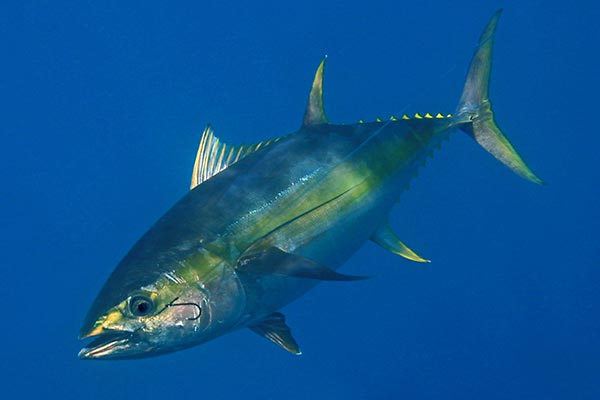Covid-19 exposed food insecurity in largest Galapagos islands.
In response to a study highlighting pre-existing food insecurity issues, a collaborative effort by researchers from Ecuador, Germany, and Canada, along with the Charles Darwin Foundation and a Belgian institute, has proposed the establishment of a seafood innovation laboratory in the Galapagos Islands.
The study, conducted by researchers from the University of the Americas (UDLA-Ecuador), the University of Hamburg (Germany), the University of Waterloo (Canada), and the Flanders Marine Institute (Belgium), focused on understanding the impact of the early stages of the COVID-19 pandemic on seafood consumption patterns and food security in the Galapagos.
The research revealed alarming levels of food insecurity related to seafood, particularly on the most populated islands of the archipelago. Isabela Island experienced a worsening of the issue during the pandemic, according to Mauricio Castrejón, a scientist from UDLA. Despite the challenges, the seafood food system demonstrated a moderate resilience to the socioeconomic impacts of the pandemic.
Adaptive responses from Galapagos residents included modifying fish and seafood consumption habits during confinement. Some opted for home-delivered fish, canned alternatives, or alternative protein sources like meat or chicken. Simultaneously, fishermen, restaurants, and new entrepreneurs adapted by distributing fresh or prepared fish directly to households and utilizing social networks for marketing.
These adaptive measures were influenced by the unique socioeconomic characteristics of each island and the ability of seafood suppliers to shift from tourism- and export-oriented markets to focus on local residents and the domestic market.
Recognizing this transition as an opportunity, researchers propose leveraging it to transform the Galapagos seafood system, enhancing its resilience against future crises such as pandemics, climate change, or other natural and anthropogenic drivers of change.
The study identified yellowfin tuna as a key species for the food security of Galapagos inhabitants. However, challenges like illegal fishing, market fragmentation, and the lack of quality differentiation impede the development of the tuna fishery. To address these issues, researchers advocate for the creation of a seafood innovation laboratory.
Tuna would be the primary focus of laboratory
This proposed laboratory aims to provide specialized training and technical guidance to local fishermen and entrepreneurs. The goal is to enhance their capabilities in producing high-quality tuna, developing value-added products, and effectively marketing them in local, national, and international markets. The overarching objective is to foster a market that supports responsible consumption of Galapagos seafood, enabling suppliers to access markets that offer fair prices for high-quality, socially responsible, and environmentally sustainable products.
Mauricio Castrejón emphasized the importance of adopting a strategic and collaborative approach to improve the Galapagos tuna fishery and ensure its long-term sustainability. Additionally, the researchers aspire to contribute to the recovery of overexploited coastal fisheries, including the grouper (Mycteroperca olfax) and camotillo (whitespotted sand bass – Paralabrax albomaculatus), both species endemic to the Eastern Tropical Pacific and Galapagos.
These species are currently declared endangered on the International Union for Conservation of Nature’s Red List of Threatened Species. The proposed seafood innovation laboratory seeks to play a pivotal role in revitalizing and sustaining these vulnerable marine ecosystems.


0 Comments